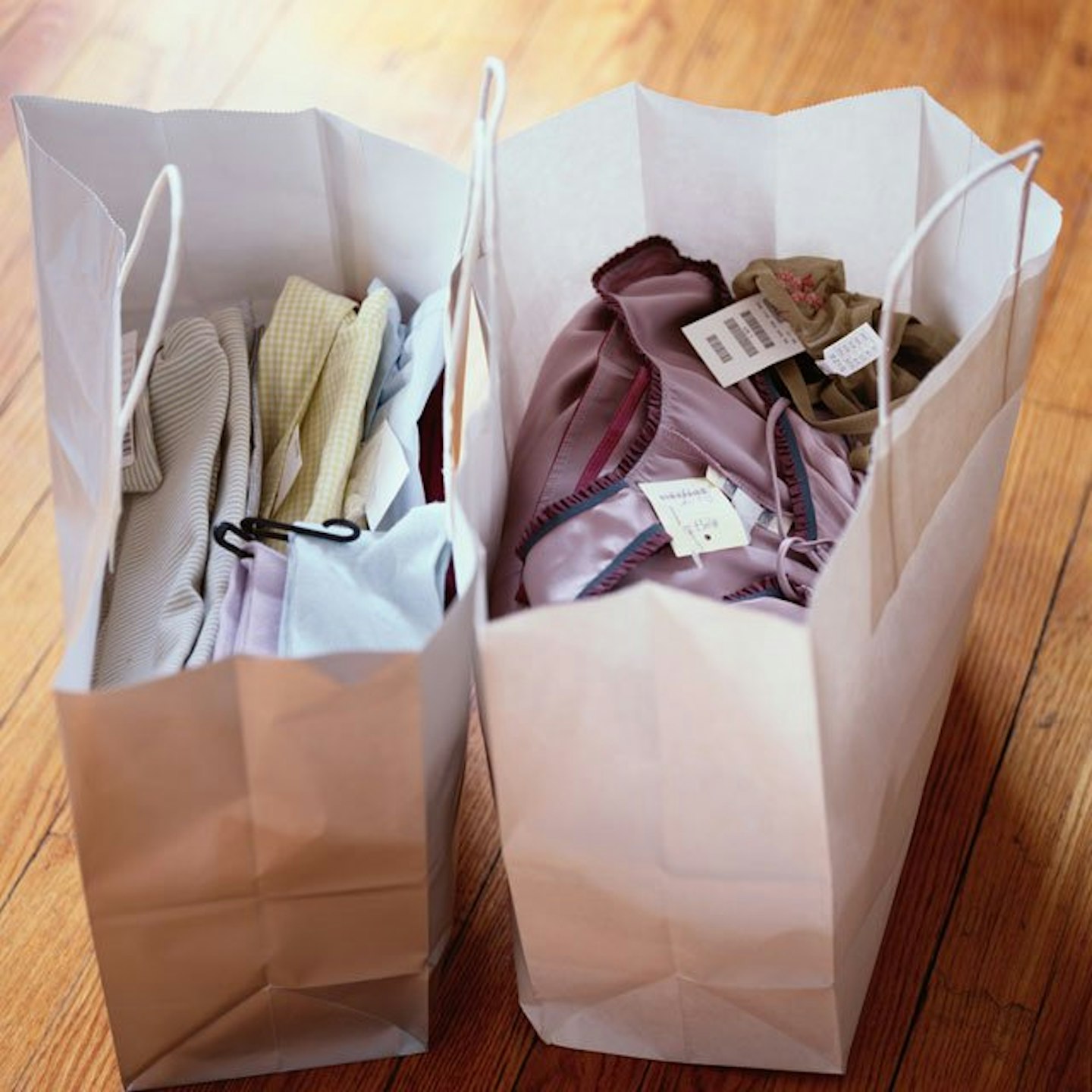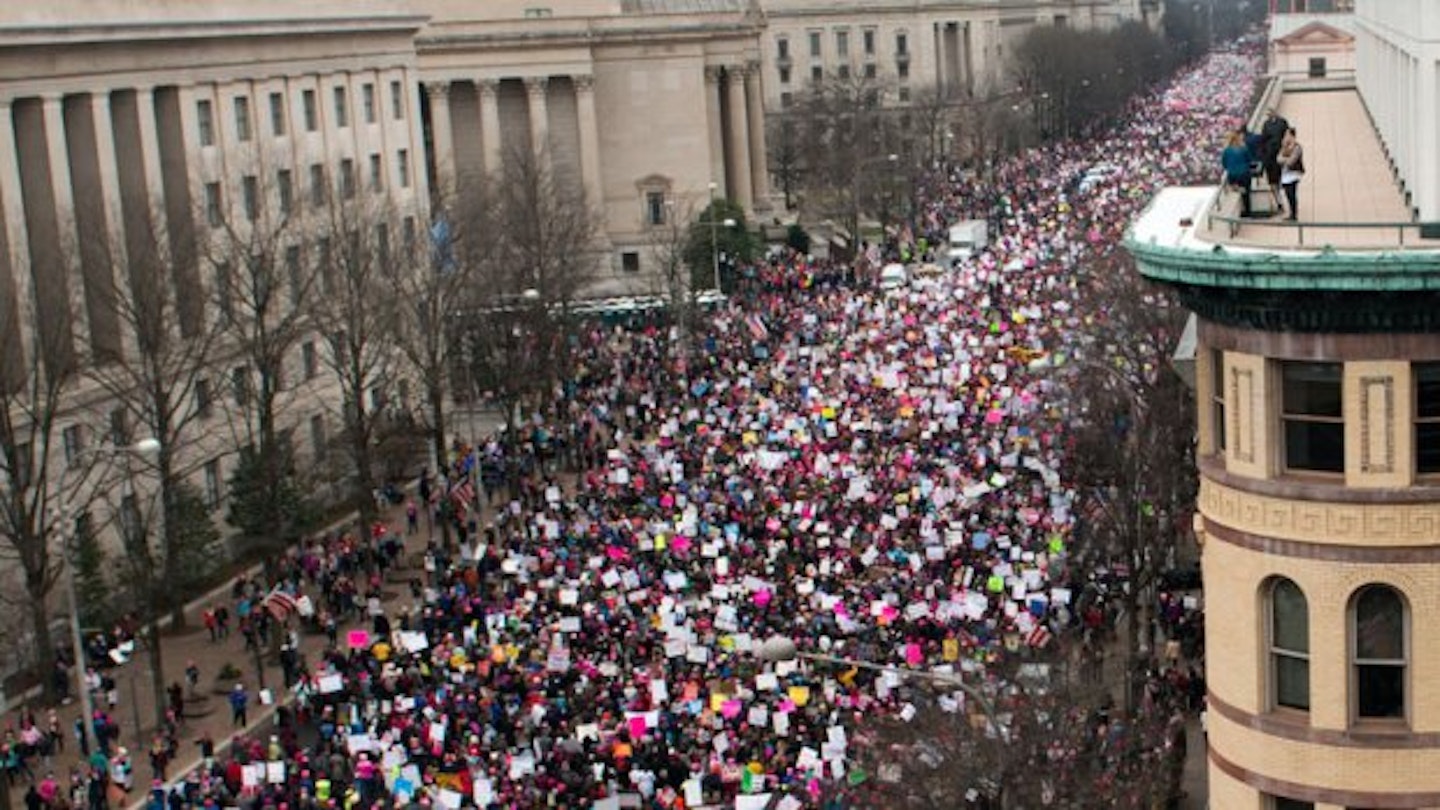This weekend, women around the world marched for equal rights. They rallied, they screamed, and they attempted to make a difference. After treading the route from Mayfair to Trafalgar Square, two of my friends peeled away from the group and headed to Zara. to buy a couple of new jumpers and a pair of trousers on a whim. Not a problem, right? Wrong. Our fast-fashion habit could be compromising our intersectional feminist principals by unfairly forgetting the (men and) women that are victimised by the industry.
A new Channel 4 documentary has uncovered the ugly underbelly of homegrown fast-fashion. Monday’s Dispatches reveals that several UK high street bands work with British-based factories that pay workers between £3 and £3.50 an hour. Unlawful, yes. But, it’s not just a local problem, it is one that is mirrored by the textile industry internationally. It’s the true cost of meeting our disposable fashion habit.
‘For many people on low wages in the UK, for instance, it's not possible to "buy less of better quality", or to seek out ethically-minded brands. Primark might be the only option for many,’ explains fashion journalist and editor at Bon Magazine Ana Kinsella.
‘In terms of the production, I think the onus is on companies to do better on every level, from paying garment workers through to retail and marketing (beyond greenwashing), and on governments around the world to instate labour laws that stop companies exploiting people.' She added.

Clothing is big business that has been estimated to be worth £9.66 billion internationally. Over the last five years, the top fast fashion retailers have been reported to have grown rapidly, by 9.7%, which far outpaces that of traditional apparel lines. According to a survey conducted last year by Barnardo’s, the majority of women’s garments are worn only seven times before being discarded. Our insatiable appetite for new clothes not only damages the environment but also the labour force creating it.
In the new Channel 4 film, an undercover reporter gets a job at a factory that labels clothes for the high street, a workshop making clothing and in a textile firm. The reporter was paid between £3 and £3.50 per hour.
As it stands, the current legal minimum wage is £7.20 an hour for over 25s, so this new show brings to the fore the cost of disposable fashion. It shows this isn’t just a burden borne by unseen workers overseas but, here, in England, where employees supposedly have rights and laws to protect them. They are being forced to pay the price of cheap clothing.
Kinsella adds, ‘That doesn't mean there's nothing a feminist can do. Increasingly I think truly ethical shopping is impossible under capitalism, but nonetheless, I try to shop mindfully, even if only to make myself feel better. Sometimes that means looking for brands like Birdsong that don't exploit their workers. Sometimes it means asking myself if I really need another black turtleneck anyway, and if the money might not be better given to a charity like Sisters Uncut or the Abortion Support Network.’
All the companies stung by this new Dispatches doc have taken the Sports Direct line of blaming suppliers and subcontractors and have promised internal investigations.
Like this? Then you might also be interested in:
Balenciaga Made PFW Great Again With A Bernie Sanders-Themed Collection
Is Iris Law Too Young To Be The New Face Of Burberry Beauty?
Follow Lucy on Instagram @lucyalicemorris
This article originally appeared on The Debrief.
